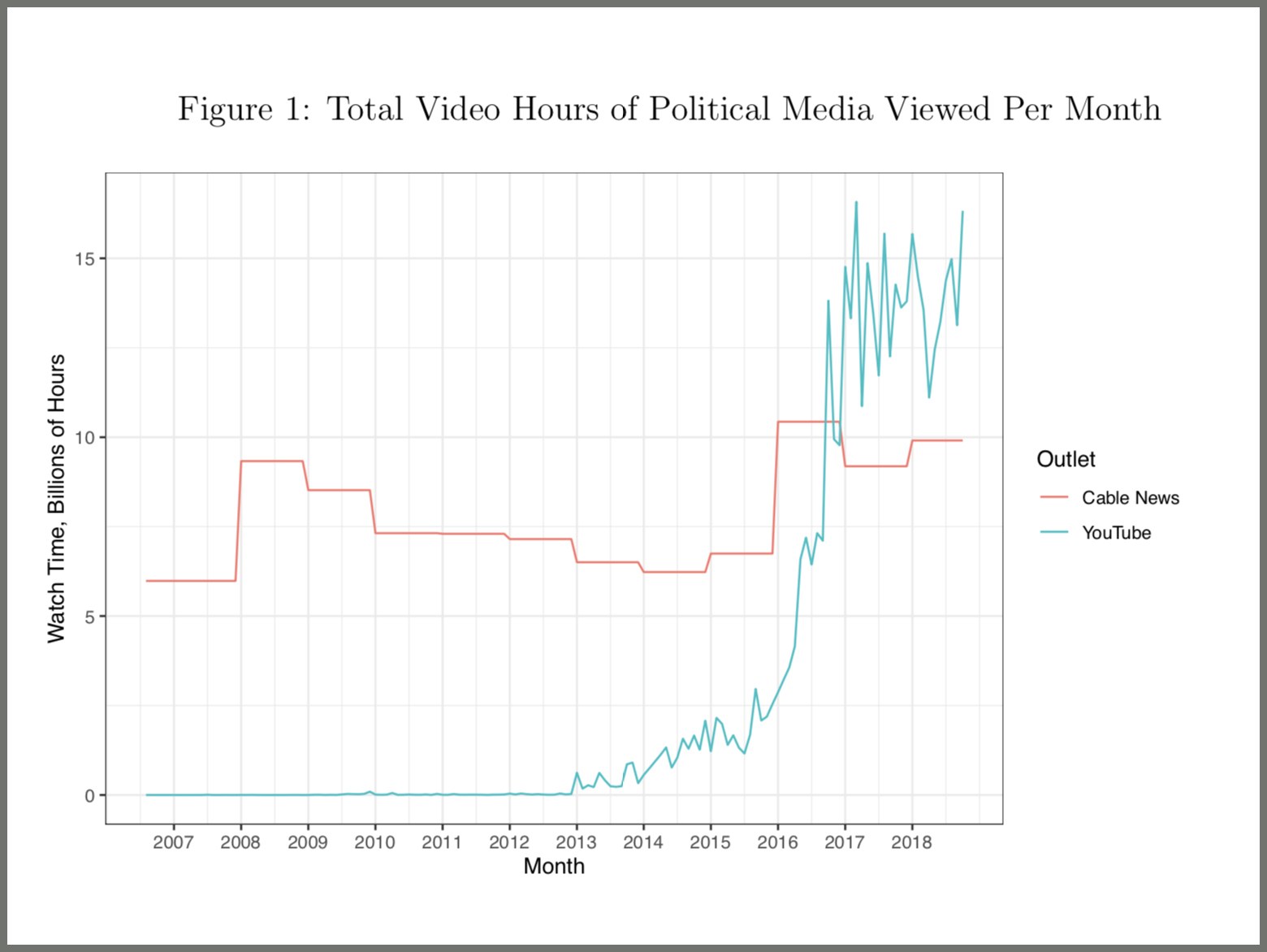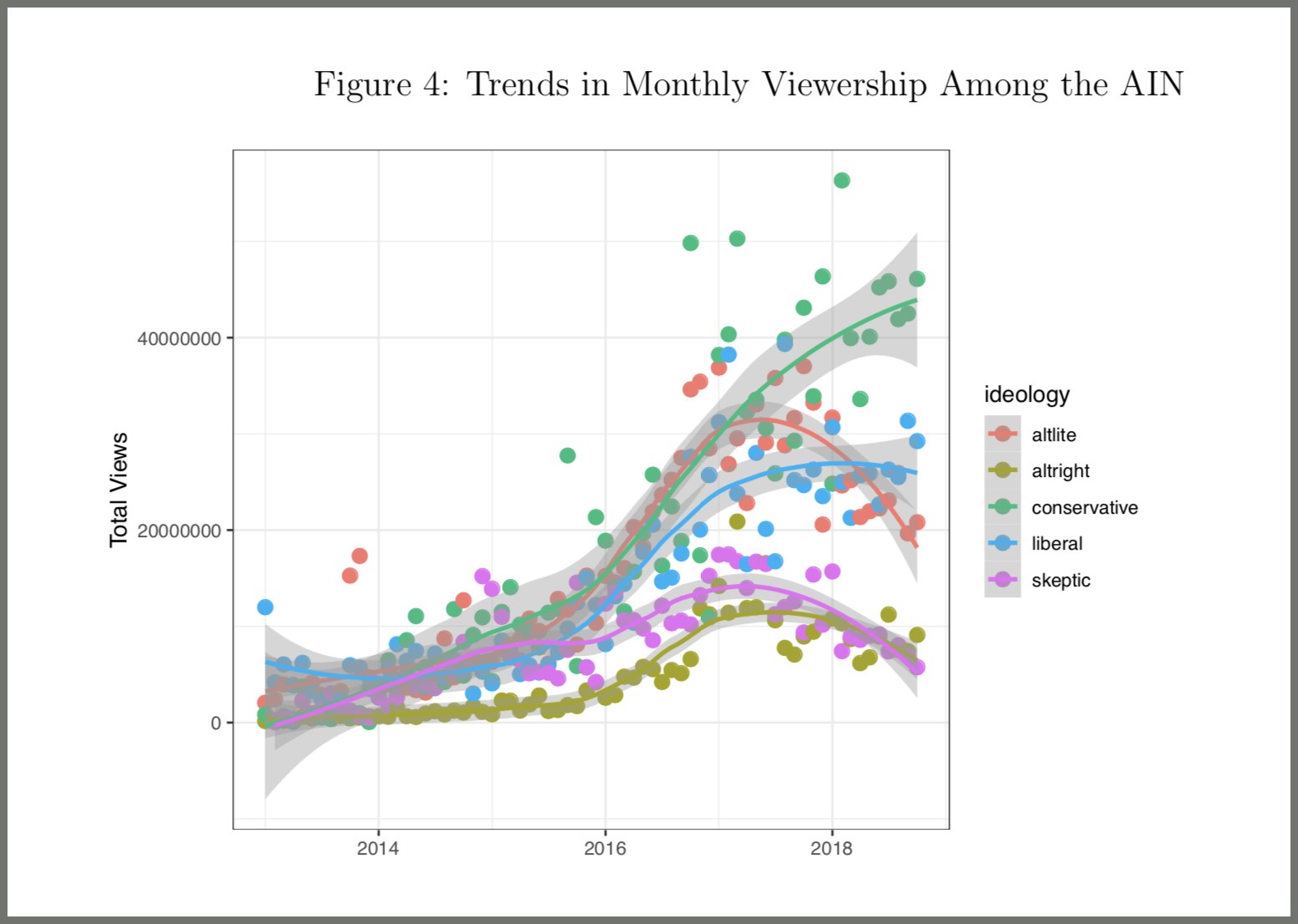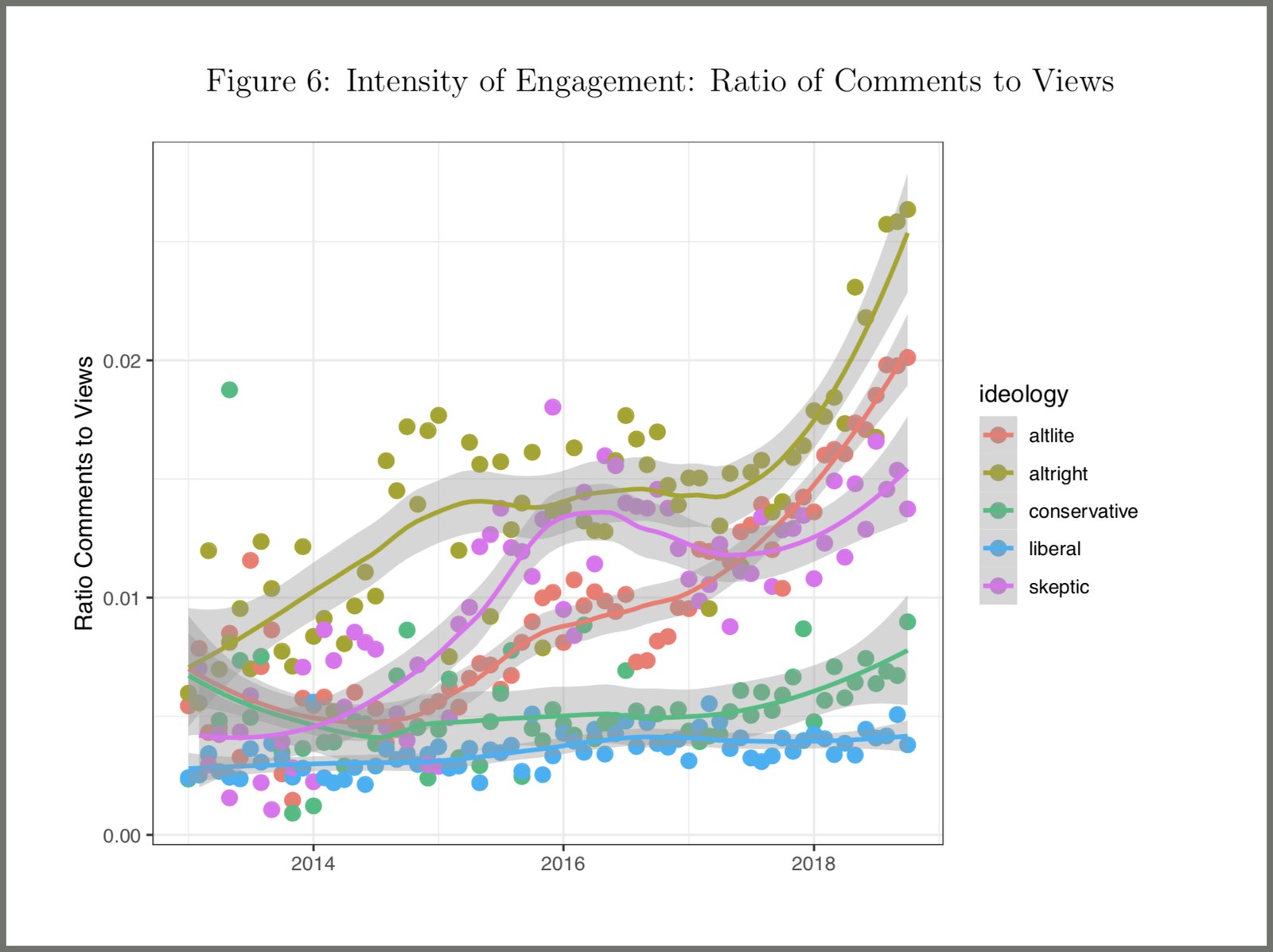This piece is very worth reading in its’ entirety. Underneath just the conclusions.
Conclusions and Recommendations
This report reviews some of the research that is relevant to foreign information efforts targeting U.S. elections. It provides a general framework for understanding these efforts and will inform our analysis in future volumes of this series. We focused on efforts by Russia and its proxies because these actors appear to have been the most active in recent years, but we note that other state and nonstate actors also might target the United States. As a result of this work, we reached four general conclusions.
Conclusions
Foreign Interference in U.S. Politics Is Not a New Phenomenon
Foreign influence in U.S. domestic affairs dates back to the founding of this country, and there are several examples in our 244 years of existence.
How the Russians Have Tried to Interfere in Recent U.S. Elections Follows Some Logic
We hypothesize that reflexive control theory—a theoretical research program first developed in the 1960s and used by the Soviet military—is part of the intellectual basis for current Russian efforts. At its core, reflexive control theory assumes that people live in a polarized world defined by either cooperation or conflict and that people make decisions based on these views. We believe that Russia is trying to generate, spread, and amplify falsehoods that distort views of “us” versus “them,” with the desired outcomes of (1) driving people to view each other as either friends or adversaries, or (2) exhausting people to the point that they disengage from civic affairs altogether, with the result of political paralysis.
Russia’s Tactics Aim to Polarize Americans and Paralyze the U.S. Political Process
These tactics consist of attempts at polarizing and disrupting social cohesion. Some tactics aim to exacerbate divisive issues, such as racial inequities or immigration. Others target public confidence in democratic institutions and processes as a way to undermine social trust. Underlying these efforts is a broader tactic of using falsehoods to spread confusion, drive groups of people to extreme positions, and generate collective exhaustion within U.S. society. Finally, there is evidence that Russia has tried—and continues to try—to gain direct influence over the U.S. political decisionmaking process, although we do not know how effective these efforts have been.
Our Sample of Relevant Research Revealed Some Trends for Responding to Falsehoods
Although our sample of studies is not representative of all research on this topic, it does provide some ideas for emerging practices in responding to foreign information efforts. Much of this research is fragmented and cuts across multiple disciplines, causing us to organize it by primary unit of analysis: the production of new falsehoods, the distribution of existing falsehoods, or the consumers of this content.
Research on production largely focused on targeting of falsehoods and the features of this content. For studies on the distribution of existing falsehoods, research focused on the role of social media platforms in preventing the spread of online falsehoods and the role of machine-learning models to mitigate this spread. Finally, research on consumption largely focused on consumer views of content and the impacts of fact-checking.
Recommendations for Responding to Foreign Information Efforts
Democracy depends on citizens finding consensus with people whom they might view as different from them. Foreign adversaries have made attempts at undermining the formation of this consensus and will continue to do so.
Foreign interference has occurred throughout U.S. history and likely will continue in the future. Russia seems to have advanced its information efforts in recent years, and we suspect other countries will try to emulate these practices. We offer three recommendations for how to start designing responses to these existing and emerging threats that target U.S. democracy. In future volumes of this series, we will present results with more-specific recommendations for responding to these foreign information efforts.
A Holistic Strategy Is the Optimal Response to Information Efforts by Foreign Countries
During the Cold War, Secretary of State Lawrence Eagleburger recommended a “balanced approach” to Soviet information efforts that neither ignores the threat nor becomes obsessed with it (Eagleburger, 1983). Our assumption is that reflexive control theory is part of the intellectual basis for Russian efforts targeting U.S. elections. The unit of analysis of this theory is broad, spanning the entirety of U.S. society and any particular piece of online content, social media platform, or individual consumer. We recommend that any defensive strategy account for the complex relationships among the production of falsehoods, how others distribute content (particularly online), and the impacts of this content on consumers.
Any Defense Should Anticipate Those Who Are Likely to Become Targets of These Efforts
We believe that a key goal for information efforts is to alter people’s perceptions to amplify a view of “us versus them,” with political paralysis as the ultimate goal. Social or political issues tied to identities (such as race, gender, social class, or political affiliation) that hold meaning for people are useful starting points because false content tied to these characteristics might elicit strong reactions (Marwick, 2018). We suspect that foreign efforts will likely produce content that plays on these identities in an effort to amplify differences and deepen preexisting fault lines in U.S. society. Thus, we recommend developing strategies that anticipate which subgroups are most vulnerable to such efforts without publicly shaming these groups or targeting specific individuals.
Any Response Should Attempt to Protect Potential Targets Against Foreign Information Efforts
The antidote to manufacturing intergroup conflict is convincing people that they have more in common with those who are different from them than they might believe at first glance. We recommend collecting, analyzing, and evaluating preventative interventions to protect people from reacting to falsehoods meant to divide the country (e.g., public campaigns that emphasize shared interests of Californians, public warnings about broader information efforts by foreign adversaries, or media literacy programs for subgroups that are potential targets).
In conclusion, democracy depends on citizens finding consensus with people whom they might view as different from them. Foreign adversaries have made attempts at undermining the formation of this consensus and will continue to do so. There is a logic to these attempts. The best defense is a holistic approach that accounts for the preexisting fault lines that exist within U.S. society.
Download the Full Report (includes references and appendixes) ⤴
Source: From Consensus to Conflict: Understanding Foreign Measures Targeting U.S. Elections | RAND



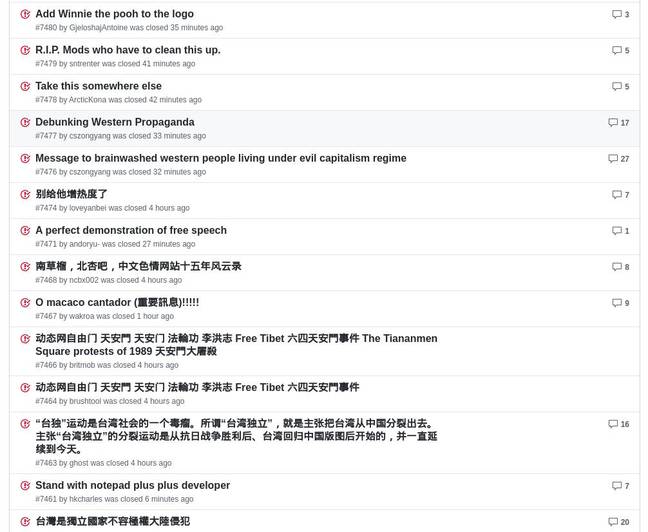
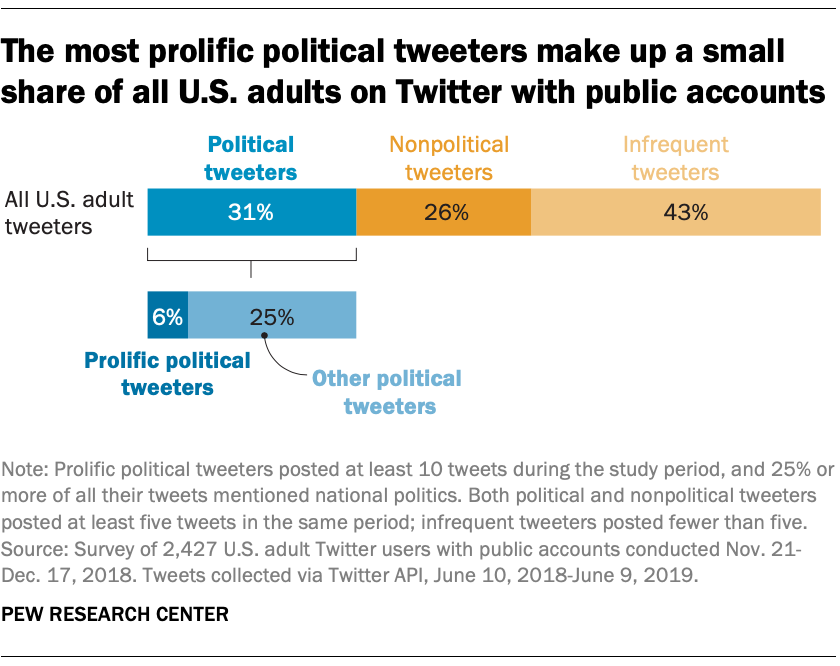 Most U.S. adults on Twitter largely avoid the topic: The median user never tweeted about national politics, while 69% only tweeted about it once or not at all. Across all tweets from U.S. adults, just 13% focused on national politics, according to a new
Most U.S. adults on Twitter largely avoid the topic: The median user never tweeted about national politics, while 69% only tweeted about it once or not at all. Across all tweets from U.S. adults, just 13% focused on national politics, according to a new 